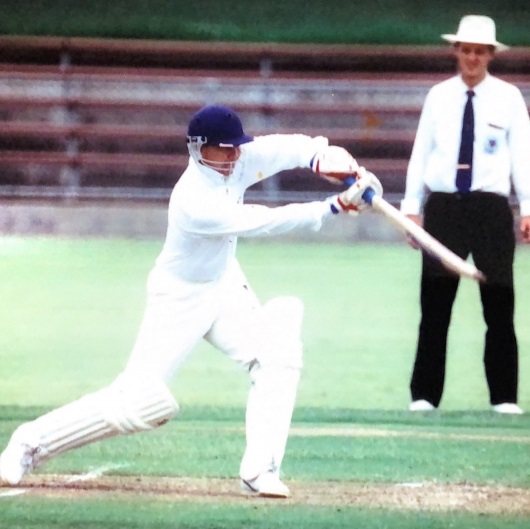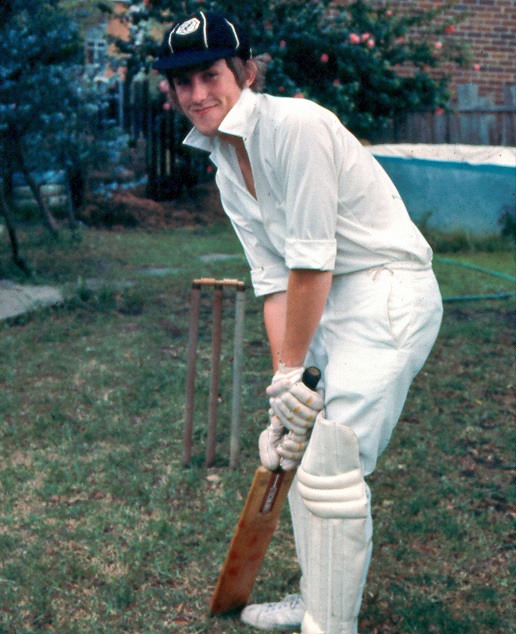
0 Followers
I’m 17 and have only played 6 or 7 two day games and I’d like to ask and get some advice on how to go about building an innings?
Partner Sponsors
Responses
Hi Rohin
I might be a bit old school here as the game has changed a lot from my playing days in the 90's, however, I don't think the process of building an innings in the longer form of the game is any different. Assessing the conditions and the wicket is very important and providing the time for you to get through the initial high risk part of your innings, that first 10-20 runs. Playing straight and eliminating shots of risk like hooks, pulls, cuts and hitting across the line until you have got into the rhythm of your innings will help you get off to the good start you need. Taking your singles and running hard between the wickets will help you build your total and work you into your innings where you are comfortable and confident. You can then expand your shot selection and range. Concentration from that point is the key, making sure you take a mind break and reassess when you are not on strike and switch on again when you are back on strike.
Hope this helps you to bat long !
Regards
Scott Jacobson
Scott has nailed most of it on the head but I would add a pre-innings routine which includes having your gear on or nearby, some time talking with outgoing batsmen and watching the game closely before you bat. Too many players spend the time waiting to bat, talking and thinking about anything but the task at hand. Fold yourself into the game before you bat, watching bowlers from different angles and imagining how you might play balls you have seen others play.
Once out there, don't relax. That comes later, when you have the pace of the wicket and have the feel of the bat on ball and things like how the ball rolls across the turf stored in and operating in automatic. "Watch the ball" is often said but seldom done well by those who regularly fall early. Watch it all the way to your bat or if letting go, to the keeper's gloves. Don't engage with fielders, only your own self talk. A near miss or even a dropped catch means you are still out there and neither count for anything unless you adjust the error and apply it to the next ball ... so make your self-talk positive.
Play as many low risk shots as you can in the first half hour. Push singles and watch closely at the bowlers end. Remember, the vast percentage of dismissals are the result of the batsman's error. You might get the unplayable ball but its more likely you'll depart because of something you do, not the bowler.
Long innings are built on defence. Defence is a coefficient of a well practiced skill and concentration, so you start building an innings in the practice nets. Always bat in the nets as if you are starting an innings because its the most vulnerable part of your turn at the crease and the one most easy to replicate in the nets. Of course, you may have specific sessions when you rehearse certain shots with a coach but for regular sessions, play it for real when you walk into the net.
Some players have trigger movements as they prepare to face the bowler but these have been blown out of real importance by idiosyncratic players of the last ten years. Most players don't have or need the complexities of a Smith or a Labuschagne. They can afford to incorporate their unusual habits because they are are gifted but their success is not as a result of those habits. For the vast majority, such trigger movements are a distraction. The one trigger which can be useful though, is a soft-spoken mantra ... often something like "watch the ball" but it may be anything, as long as it brings your focus to the approaching bowler and starts your response to his challenge.
Of course, much of this changes with short form cricket where no one is expected to concentrate for lengthy periods of time and a good eye, a wide bat and the confidence to attack without fear of failure are the main requirements. Its a matter of audacity v perspicacity. As a player and lover of the game for more than sixty years, to me the real satisfaction comes will a long innings against good bowlers and tough conditions.
We often tell incoming batsmen "good luck". Its a crock! Its all about good management.
Enjoy yourself Rohin. I envy the long time you have ahead of you playing such a wonderful game.









